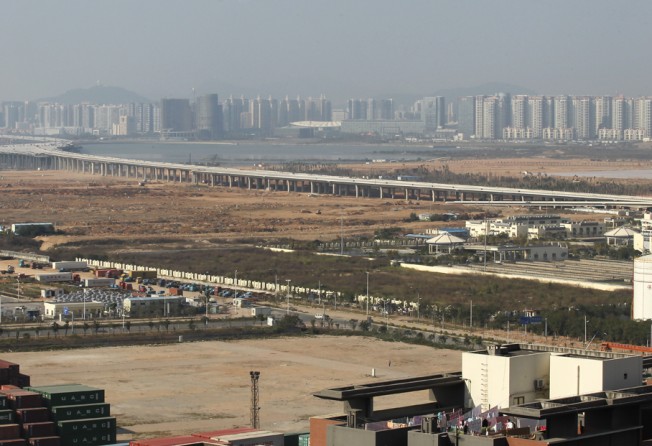Hong Kong companies need to consider moving to Qianhai
Finance, IT and logistics firms are likely to ponder whether an escape from the space constraints in Hong Kong makes sense

Hong Kong needs space to allow its economy to grow and it is becoming increasingly clear that key decision makers believe that the solution may not lie exclusively within Hong Kong's physical boundaries.
The simple fact is that the lack of available office space in Hong Kong is a major concern for occupiers and, if this is not addressed, then, over time, we could see some occupiers re-assess their commitments here.
The vacancy rate is close to a historic low despite the less than robust economic environment. Yet supply forecasts suggest a shortfall in new completions going forward. Moreover, a lot of space scheduled for completion through to the end of the decade will be unsuitable for major occupiers, either because the building floor plate is too small or the anticipated fragmented ownership is less than ideal.
The lack of options for occupiers contributes not only to high occupancy costs but also market volatility, which combine to hinder long-term planning for companies in Hong Kong.
Less than one hour from Central, across the border in Qianhai, development land has been sold, or is soon to be tendered, which will allow for the completion of approximately 14 million square feet of office space by 2018. Given the constraints that occupiers face and will continue to face in Hong Kong, new developments such as Qianhai are bound to attract attention.
However, which business sectors are most likely to produce candidates to occupy space there?
CBRE's global corporate services team is well positioned to gauge potential occupier interest and believes that the finance sector would be keen to explore two main options - front-office trading (subject to regulatory approval by the Hong Kong Stock Exchange) and potential back-office functions that would support the Pearl River Delta area.
The ability to secure large- floor-plate buildings, purpose-built for the requirements of the finance sector, including dual cores and space for generators, power and cooling, will be a key driver to relocating this business from elsewhere in the delta. The labour force is available to support both of these functions, drawing from the numerous universities and higher education facilities in the area.
Despite the land in Qianhai being reclaimed, the IT sector could also seize the opportunity to construct purpose-built data centres to support both the development zone itself and the wider delta region. In addition, we expect to see the establishment of research and development facilities within the Qianhai area, drawing on the immediate talent pool and favourable tax incentives that we anticipate being offered by the joint governing body.
We also see significant opportunity for the logistics sector given the large amount of land available in the area. This would allow service providers to build or secure modern warehouses and logistics facilities which interface with the latest electronic goods-handling technology.
The excellent transport access - Guangzhou, Shenzhen and Hong Kong airports and the delta ports are all within easy reach - make this an interesting opportunity.
The Qianhai authority aims to attract professional services, and accountancy, audit, law and other functions that support the finance and IT sector will follow in time. If the regulator permits trading functions for the Hong Kong and Shanghai stock exchanges then we anticipate seeing this early on.
Moreover, if IPO activity is permitted from Qianhai then we would expect all of the supporting functions to move there from the outset.
We believe the opportunity for an early mover to establish itself in Qianhai and occupy a key building with significant branding opportunities is attractive to multinational companies in southern China and the delta area. Moreover, from a multinational company perspective, now is the ideal time to start considering Qianhai as part of a wider China or Asia strategy.
The Pearl River Delta is a hive of activity, with major transport infrastructure such as the Hong Kong-Zhuhai-Macau bridge, the high-speed rail link and other intermodal links connecting 100 million people within a one-hour living sphere. The rationale behind the drive to integrate the delta is becoming clear, and dare I say, the various high-profile projects are starting to make sense.
Craig Shute is the senior managing director, CBRE, Hong Kong, Macau and Taiwan